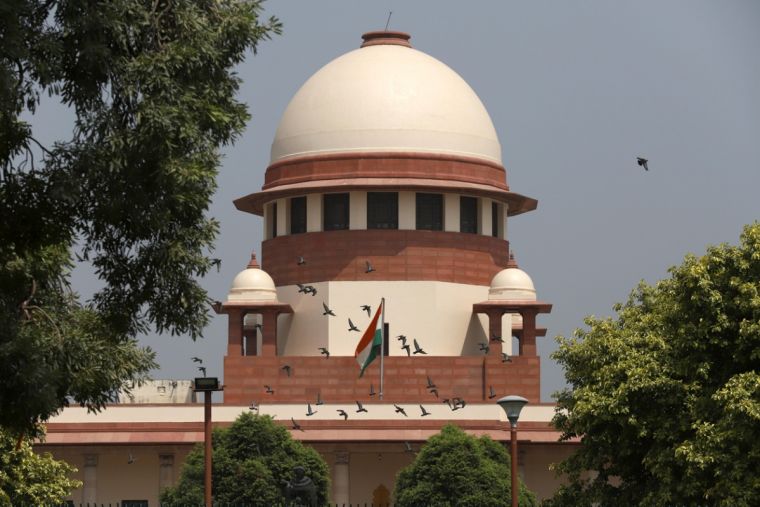Concerns for India's religious minorities after Supreme Court calls for action against Hindu conversion

Human rights and religious liberty campaigners are sounding the alarm after India's Supreme Court called on the government to act against supposed "fraudulent religious conversion".
India's highest court in the land said last week that forced conversions were "a danger to national security".
Responding to the court order, the Coalition for Minority Rights in India said in a submission to the UN that changing religion is neither "dangerous" nor "fraudulent".
It warned that India's religious minorities are "...on the edge of a precipice as their rights and freedoms have eroded in the face of a growing violent majoritarian ideology".
"We deplore last week's ruling," a spokesperson for the coalition said.
"It decries 'fraudulent religious conversion' as a 'nationwide problem' with no facts or data to support such allegations.
"We are worried that in the light of this, the government of India will undermine religious freedom even further."
The coalition is formed of Open Doors International, the Indian American Muslim Council, Hindus for Human Rights, Justice for All, the World Evangelical Alliance and the International Commission for Dalit Rights.
Speaking on behalf of Open Doors, Lisa Gentile said, "There is no evidence of widespread forced conversion to Christianity or Islam in India."
The submission coincided with a meeting of UN member states to review India's human rights record during its Universal Periodic Review (UPR).
A dozen states urged the Indian government to investigate cases of religious violence and discrimination, and ensure that anti-conversion laws do not infringe upon religious liberties.
They also called upon the Indian government to condemn violence and hate speech against religious minorities.
A final report will be published in March 2023.
The Indian constitution includes religious freedom protections but conversion from Hinduism to a minority faith like Christianity or Islam is restricted in many states by anti-conversion laws. The anti-conversion laws do not restrict conversion to Hinduism.
In Uttar Pradesh, local authorities require residents to submit a declaration of their intent to convert and publicly display the document.
Gentile warned that the requirement was "virtually incitement to violence".
"Such public notifications alert vigilante groups to their next victim and tells them exactly where to find them," she said.
India is currently ranked number 10 on the Open Doors World Watch list of countries where Christians suffer the worst persecution.
As India continues to clamp down on conversions, there is growing evidence that violence against religious minorities is on the rise, some of it even being encouraged by senior political figures, Open Doors said.
"Muslims have been subjected to increasing mob lynching, cow vigilante attacks, public beatings, even calls for genocide," Gentile continued.
"Christian congregations have regularly been attacked by Hindu nationalist mobs who have weaponized current anti-conversion laws.
"The United Christian Forum recorded more than 300 attacks on Christians in the first seven months of 2022 alone."











